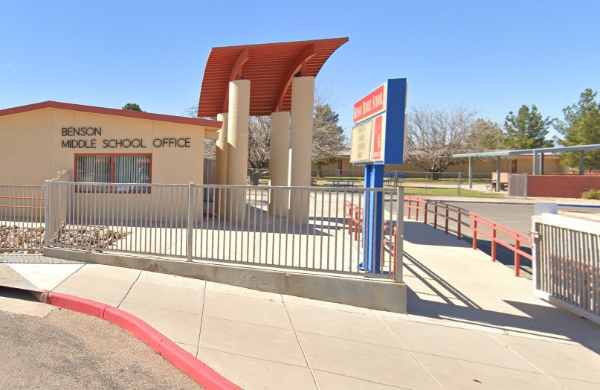
According to 12 News, a 65-year-old teacher has been arrested following an investigation into alleged misconduct. The Benson Police Department made the announcement on Friday, revealing that felony charges have been filed against Charles Ramsey, a teacher at Benson High School located at 360 S Patagonia St, Benson, AZ 85602.
The arrest comes after an extensive investigation conducted by the Benson Police Department into Ramsey's alleged actions. While specific details regarding the nature of the misconduct have not been disclosed, authorities deemed the evidence substantial enough to warrant the filing of felony charges including sexual conduct with a minor, sexual abuse, child sex trafficking, child abuse, and luring a minor for sexual exploitation.

In light of the recent arrest of a teacher at Benson High School on charges of alleged misconduct, we reached out to Kevin Biniazan, Esq., a local Arizona-based sexual abuse attorney, to provide insight on civil cases related to enabling abuse within educational institutions. Our editor, Darla Medina, had a conversation with Mr. Biniazan to shed light on the legal options available to survivors of sexual abuse.
Darla Medina (DM): Thank you for joining us today, Mr. Biniazan. Given your expertise in sexual abuse cases, could you provide some guidance on what survivors of sexual abuse within educational institutions can do from a civil standpoint?
Kevin Biniazan, Esq. (KB): Thank you, Darla. It's my pleasure to be here. When it comes to survivors of sexual abuse in educational institutions, including high schools, pursuing a civil case can be an important step towards seeking justice and holding those responsible accountable. In these cases, it's crucial to consult with an experienced attorney who specializes in sexual abuse cases to navigate the complex legal landscape.
DM: Absolutely. Could you explain the concept of enabling abuse within educational institutions and how it can be addressed in civil cases?
KB: Certainly. Enabling abuse refers to situations where individuals or entities within educational institutions fail to take appropriate action to prevent or address instances of sexual abuse. This can include negligence in hiring, supervision, or training of staff, or failing to respond adequately to reports or signs of abuse. In civil cases, survivors may pursue claims against not only the abuser but also those who enabled the abuse through their actions or inactions.
DM: That's an important distinction. What legal options are available to survivors who wish to pursue a civil case against those who enabled abuse within educational institutions?
KB: Survivors of sexual abuse can explore various legal avenues, such as filing a lawsuit against the educational institution itself, individual administrators, or other employees who were aware of the abuse or failed to take appropriate action. Civil cases may seek compensation for damages such as medical expenses, therapy costs, emotional distress, and loss of quality of life.
DM: I see. How can survivors build a strong case in these situations?
KB: Building a strong case involves gathering evidence and working closely with legal professionals who specialize in sexual abuse cases. Evidence may include witness testimonies, documentation of prior complaints, emails, or any other relevant records that support the claim. It's crucial to work with an attorney who can help navigate the legal process, protect the survivor's rights, and seek the justice they deserve.
DM: Thank you, Mr. Biniazan, for shedding light on this important issue. Any final thoughts or advice for survivors who may be considering pursuing a civil case?
KB: My pleasure, Darla. To survivors considering a civil case, I would encourage them to reach out to an attorney who specializes in sexual abuse cases as soon as possible. These cases can be complex, emotionally challenging, and time-sensitive due to statutes of limitations. By taking action, survivors can not only seek justice for themselves but also contribute to creating safer educational environments for future generations.
 info@legalherald.com
info@legalherald.com